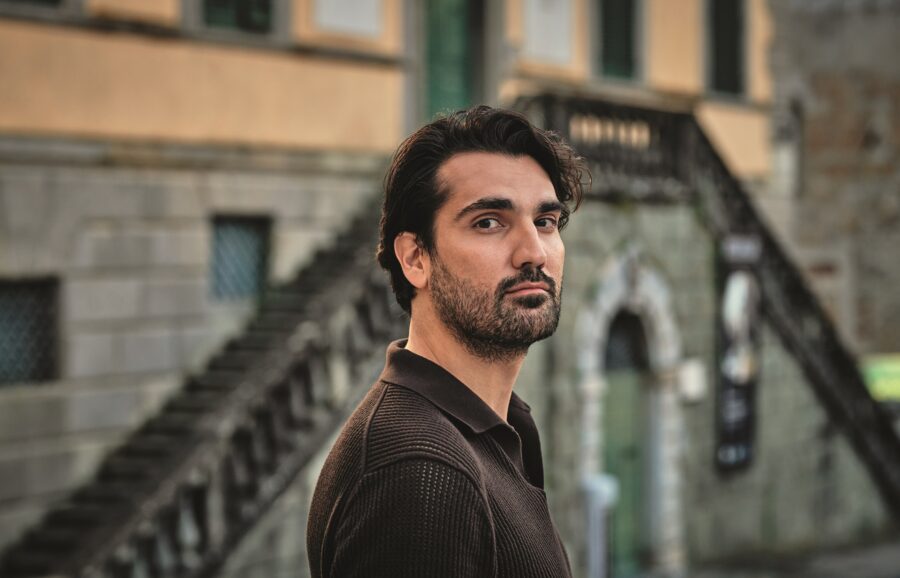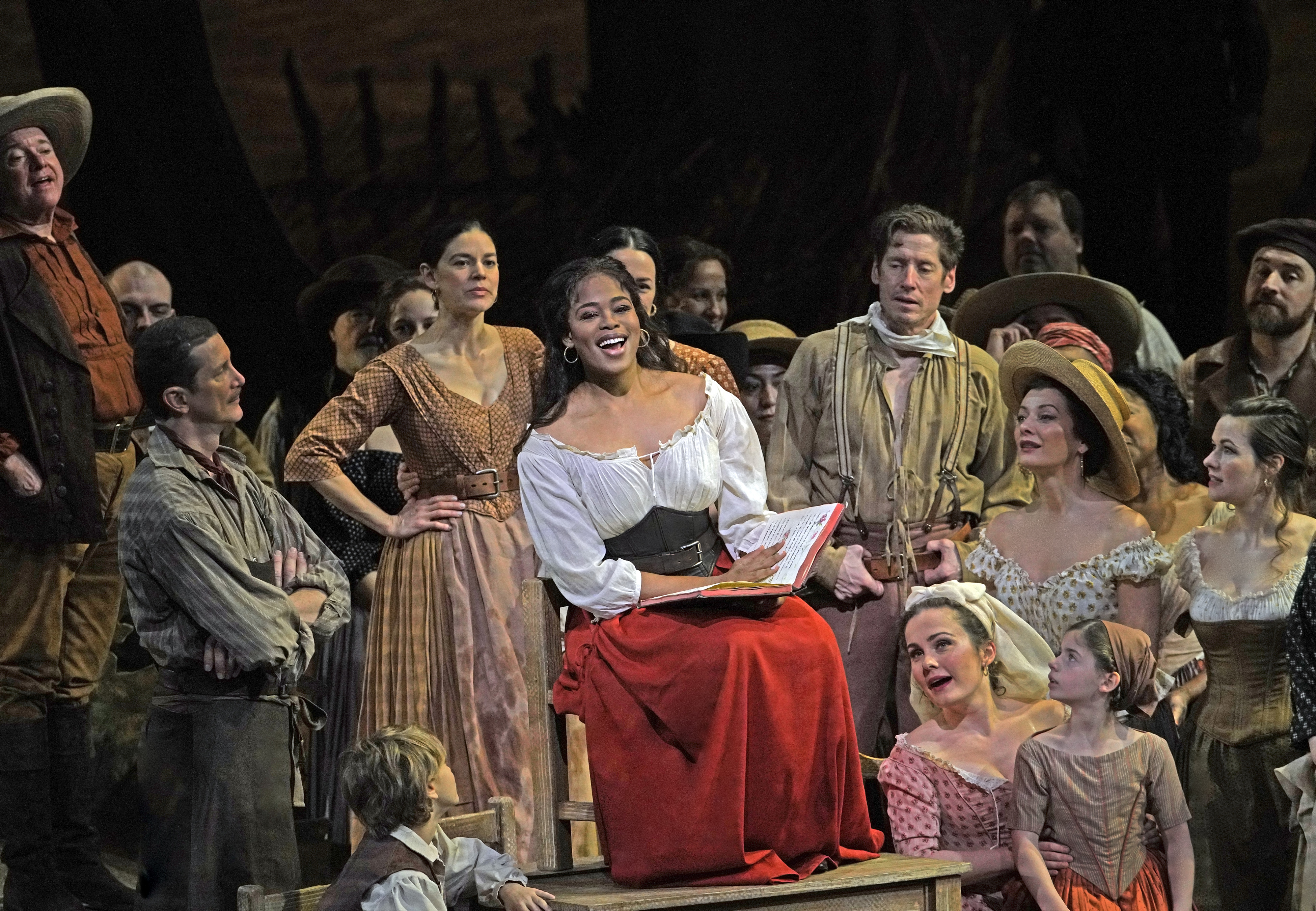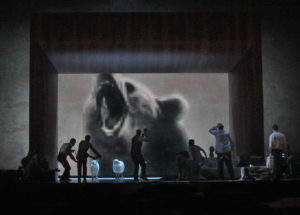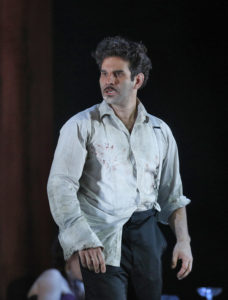Never mind how to get to Carnegie Hall; how do you get to The Met?
Jonathan Tetelman might give the traditional answer (practice) before adding that knowing how to work a crowd helps. The tenor, who spent time as a DJ in New York City’s busy club scene, was known for dropping beats before he dropped his turntables to devote himself to opera full-time. Critical acclaim, a multi-album deal with classical super-label Deutsche Grammophon, and oodles of love from besotted fans posting in opera groups on both sides of the Atlantic – Tetelman balances them all with flair, care, and a very clear nose-to-the-grindstone work ethic.
Born in Chile and raised in New Jersey, the tenor began his opera journey joining his grandparents on trips to numerous live cultural events in and around the Tri-state area. In 2011 he got his undergraduate degree at The Manhattan School of Music and began a graduate program at The New School of Music, Mannes College – believing he was a baritone. The move to New York nightlife at the time was the result of sheer frustration with having to move his vocal register up to where he was told it belonged. This past April Tetelman told AP’s Ronald Blum that telling people about his opera side was also a way of reminding himself it was still there. “I kept saying to people, ‘You know, I’m a DJ, but I’m actually an opera singer.’ And the more I said it, the more I was like: ’Am I really an opera singer?’”
The DJ work at a variety of celebrated NYC venues (including Webster Hall and the much-missed Pacha) taught him the all-important skill of taking an audience’s temperature at any given moment. Amidst the club mayhem, Tetelman gave himself six months to return to opera; it proved to be a wise choice. Cultivating his vocal technique as a tenor led to an opportunity to sing the role of Rodolfo in Puccini’s La bohème at Fujian Grand Theatre in China, a role he would come to become known for. A performance in the opera at English National Opera followed, and then a succession of engagements. He made his Covent Garden debut with both Puccini (as Rodolfo) and Verdi (Alfredo in La traviata). In Italy he performed as Cavaradossi in Tosca and Canio in Pagliacci with Teatro Regio Torino; in France, Puccini’s Pinkerton in Madama Butterfly with Opéra national de Montpellier and Cavaradossi with Opéra de Lille. Tetelman has also sung the lead in Massenet’s Werther with both the Gran Teatro Nacional de Lima (Peru) and Opera del Teatro Solis (Montevideo), and performed in Germany at the Komische Oper Berlin, Deutsche Oper Berlin, and Dresden Semperoper. He sang lead in Verdi’s Stiffelio with Opéra national du Rhin in 2021, with Opera-Online’s Thibault Vicq noting that “(c)e n’est pas tous les jours qu’une telle sculpture de chant se devine et se dévoile en des émotions si justes, constructives et dévastatrices.” / “It’s not every day that such a sculpture of song is revealed and expressed in such accurate, constructive and devastating emotions.”
Tetelman’s concert appearances include performances in Verdi’s Requiem and Beethoven’s Ninth Symphony, and, as well as giving a number of international recitals, has worked with celebrated conductors including Michael Tilson Thomas, Andris Nelsons, Dan Ettinger, and Speranza Scappucci. His first album, Arias (Deutsche Grammophon, 2022), showed the breadth of his talent in terms of Italian and French repertoire; it won the Oper Magazine Awards for Best Solo Album of the Year, 2023, the same year he was honoured with an Opus Klassik Award as Break-out Artist of the Year. Tetelman’s second album, The Great Puccini (Deutsche Grammophon, 2023) features selections from nine different Puccini works, with the Prague Philharmonie and conductor Carlo Rizzi also joined, on various tracks, by sopranos Federica Lombardi, Marina Monzó, and Vida Miknevičiūtė; mezzo-soprano Rihab Chaieb; baritone Theodore Platt; and bass Önay Köse. The album underlines Tetelman’s reputation as a singer of considerable intensity and lyricism. In her review for BBC’s Classical Music magazine, Puccini scholar Alexandra Wilson praises Tetelman’s “nuanced approach to characterisation”, singling out album opener “Donna non vidi mai” (from Puccini’s Manon Lescaut) as “ardent and expansive, vowels strikingly warm and open, strings effectively foregrounded.”
Tetelman made his much-anticipated Metropolitan Opera debut this past spring, as Ruggero in La rondine (opposite soprano Angel Blue) and Pinkerton in Madame Butterfly (opposite soprano Asmik Grigorian), and more Puccini is in store next season, starting with Madame Butterfly at Los Angeles Opera. From there, Tetelman will be performing in a concert presentation of Tosca with the acclaimed Accademia Nazionale di Santa Cecilia in Rome. Spring 2025 sees the tenor performing with the Berlin Philharmonic under the baton of Music Director Kirill Petrenko; the orchestra’s annual residency at Baden Baden (followed by performances on home turf at the Philharmonie) sees Tetelman singing Pinkerton opposite soprano Eleonora Buratto’s Butterfly in a production by Davide Livermore. Next season also sees performances of works by Bizet, Mascagni, and Verdi, as well as the concert version of Werther at Deutsche Oper Berlin, with Tetelman in the title role opposite soprano Aigul Akhmetshina’s Charlotte.
When he spoke recently the tenor was taking a brief if deserved break. No divo this, he happily shared his thoughts on everything from future opera goals to his many past club-life lessons. The earthy combination of talent, confidence, intelligence, ambition, humility, humour, and obvious music love make Tetelman a figure worth watching. Of course he knows how to drop the beat – and raise the bar, at once, with great style.
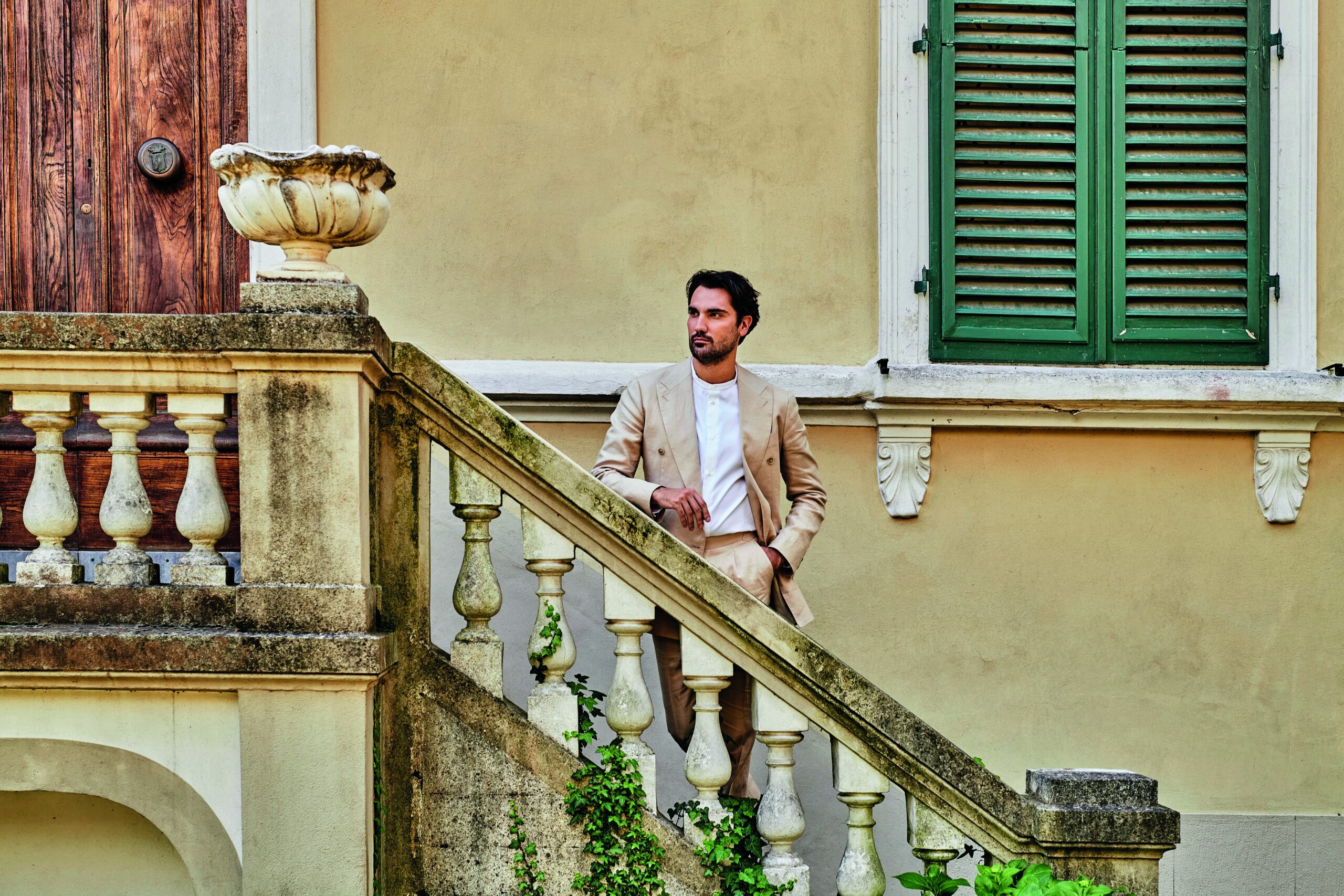
Photo: Ben Wolf
What was the very first opera you attended?
I think it was Carmen, at the old New York City Opera. I also saw Porgy and Bess when I was very young, but Carmen was the first opera that inspired me to be a singer. I was maybe 10 years old. I used to see a lot of musicals too – my grandparents would take me all the time. We saw Guys and Dolls, Smokey Joe’s Café, Annie Get Your Gun, The Lion King, Annie – dozens of things.
What initially drew you to Puccini’s music?
I would say the initial draw was not that I necessarily liked Puccini, but that it was what I performed in my very first experience in singing a full-length opera as a professional tenor. Learning the role was the way I was hooked in – that’s what Puccini does if you pay a little bit of attention; he gives you such a lot to work with. I really think that it was luck that I had this opportunity. I actually didn’t really enjoy Puccini when I saw his operas at The Met in my younger days – I preferred Mozart. I think Puccini is really kind of a specialized type of opera; everything is happening quickly in many of his works, and you can grab onto the music easily but at the same time it’s not as flexible as other operas. I want to say also: I think the situations in his operas are very adult.
Carlo Rizzi was instrumental in expanding my own Puccini appreciation; have your colleagues provided similar “aha!” moments with his music?
Oh yes… I think probably countless times! I think every time I do his operas now, even revisiting them, I find something I missed before. You know, the opera industry now is so quick; you don’t have the time, like singers once did, to really find your way through a characterization, or to find the musical meaning that you want to put into the opera, at least until after you’re given the opportunity to do it a few times. We are on this kind of rush to everything these days, but Puccini really requires a lot of attention – and it’s not just about knowing your part, but really knowing the orchestration, the other characters, the other situations that are happening alongside your own situation. It takes a long time to develop the character, and then to develop a characterization vocally which supports that idea, and then to find the different vocal colours.
Moving Between Operas & Recitals
You noted in a past interview that vocal colour can’t be manufactured; what role do recitals play in your vocal development?
I was just talking to my wife about this the other day, and noting the difference between Jon the Recitalist versus Jon the Opera Singer, how the flexibility you have in a recital, whether with a pianist or orchestra, is really based upon what you’re doing with your voice and how you’re really transmitting the text. In a recital you don’t have a set, you don’t have costumes, you don’t have these other things; I feel like I can be so deeply connected to the music in that kind of space. Opera is about creating and exploring various situations, and to be honest, it’s a lot louder! There’s this very heavy-volume aspect of the opera versus the realities of a recital. Also, you’re really singing to the audience in a concert or recital, rather than in the opera, where you’re supposed to be singing to the ensemble because you’re telling a story and you’re projecting and conveying that particular story; you’re not singing specifically to the audience. That’s a big difference.
What kinds of things do you bring from one world to the other?
I think in opera, if you have a collaborative conductor who really knows the score and understands your interpretation and perspective, and respects your interpretation and wants to build that interpretation, then you have flexibility to bring things from your recital work. However, I don’t know if there’s so many of these types of maestros around; everybody has their own thoughts and approaches, and everyone has things that they want to get across. If you’re in a situation where you don’t have a lot of rehearsals or a lot of time to prepare with a specific conductor, then the experience is a sort of crapshoot, though a very highly calculated one. It takes time to really figure out the important parts that you really want to highlight in order to serve the characterization and the vocalization. Focus on those specific things in that moment.
Aside from Puccini you have also done (and will be doing more) Verdi – what’s the attraction for you?
I haven’t done many Verdi roles, but the ones that I’ve done, what I like is that you’re not really confined to a moment in time; you’re kind of suspending that moment with the voice. It’s a very different approach than with someone like Puccini where everything is moving forwards. Verdi is much more letting the music kind of propel the things that happen dramatically, even as his music digs into character a little deeper. I like that.
How does that love of character inform your recital work, and what kind of repertoire are you exploring – especially composers whose works you may want to do on the opera stage?
That’s a very good question! I’m in search of answers for that right now; I certainly would like to do something like Schubert’s Winterreise, as well as works by various German romantic composers, including some Brahms songs. Right now I think I have a very substantial volume to my voice, so for me to hold back is actually harder than to give more. Right now I’m figuring out how – and this is actually for Verdi too – how to control the intensity that I have naturally. I think with time and a little bit more experience those (composers) will definitely become possible.
Big Beats, Big Broadcasts
That awareness of pacing is important and I wonder how much your work as a DJ helped to develop it…
Whether DJing or in recitals you’re making setlists and figuring out whether the crowd is into you or not – you’re listening for which tracks are the hot tracks; what introductory things you can offer to set a mood; what gets people going or cools them off. There are things that I have to do – and I know that – so in a recital, I sing some hits, and along with those I offer a few things most of the crowd may not have heard. Then I also show the progression in my own skills, and try to present things that I hope are coming in the future. There are certainly a lot of similarities (between DJing and recitals), because they’re both performance-based; one of them is just your voice and that’s a little more challenging! Singing is definitely harder than doing DJ work, but at the end of the day… the point is that you want to move people, and you want people to come out of the hall feeling something, whether they liked it or not. You want them to have some sort of emotional reaction to what you’re doing.
The Met Live in HD series brings a different kind of a challenge there; you can’t see audience reaction at all. What’s your view?
Doing these HD things, I really don’t even think about it as, like, a performance for broadcast. I’m an opera singer: I’m going to sing for the theatre; I’m going to act for the theatre. If you want to capture it on video and critique the video part of the opera, then you’re missing the point of what opera really is. Opera is really for the people that bought a ticket and sat in that seat and came for that expression on that day. There are things about The Met Live In HD that are positive, of course, but overall I think that if you want to hear an opera, you have to go to the opera house, end of story. That’s the only way that opera is going to retain its value as a live art form. Otherwise, we could just call Netflix and say, “Hey, you know, can we get some studio time for Madame Butterfly?” I mean, yeah, right – but in that case you’re not doing an opera anymore; you’re doing a movie. People don’t necessarily have to pick a lane here, but you have to know which lane is more important than the other, especially as an artist.
The Future(s)?
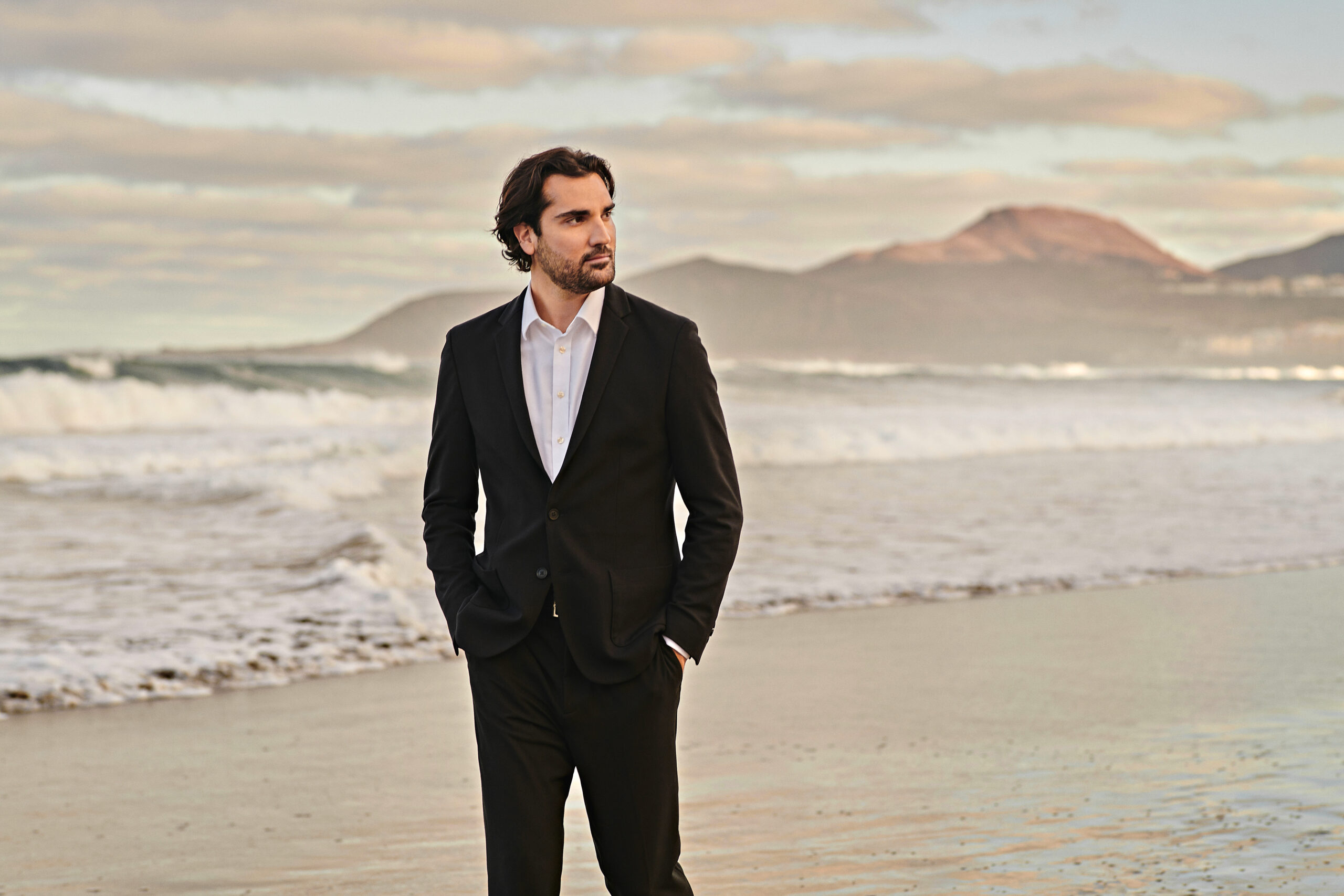
Photo: Ben Wolf
You have named various Strauss roles as roles you’d like to do in future; why Strauss?
I think Strauss would suit my voice very well. The writing for the tenor is an extreme challenge – it’s very demanding – but I think that my voice has a lot of the positive intensity in the tessitura that Strauss writes for. Puccini is wonderful, but I think Puccini is a lot of conversational singing. It’s a lot of “Let’s get through this and then finally there’s an aria.”
My mother used to say just that!
It’s true! There’s a lot of conversation with Puccini. With Strauss, some of the roles I’d like to do – like Apollo (from Strauss’s Daphne), I mean that’s a very intense role; you really have to be on for it. That’s just the kind of music I really like to do and hope to do. I don’t want to waste my voice; I want to be out there in the sweet vocal spot the whole time, and (Apollo) is a role that I’m really looking forward to doing, hopefully sooner than later.
I keep hearing you as The Tenor in Rosenkavalier as well…
That’s a good one too!
Returning to theatre: I’m curious what you think live art, including opera, can offer people in 2024, a moment in time when so many are staring at little screens.
Opera is really a safe haven for your mind, I think. You might be stuck in this difficult world facing really difficult things, and you can go to an opera or a symphony, and just listen and escape it all for a while, and then find your own world inside the music. That’s what’s so wonderful about going to live music and theatre: you fall into a world that doesn’t exist, but one that can exist in your mind. I think the whole experience is special.

